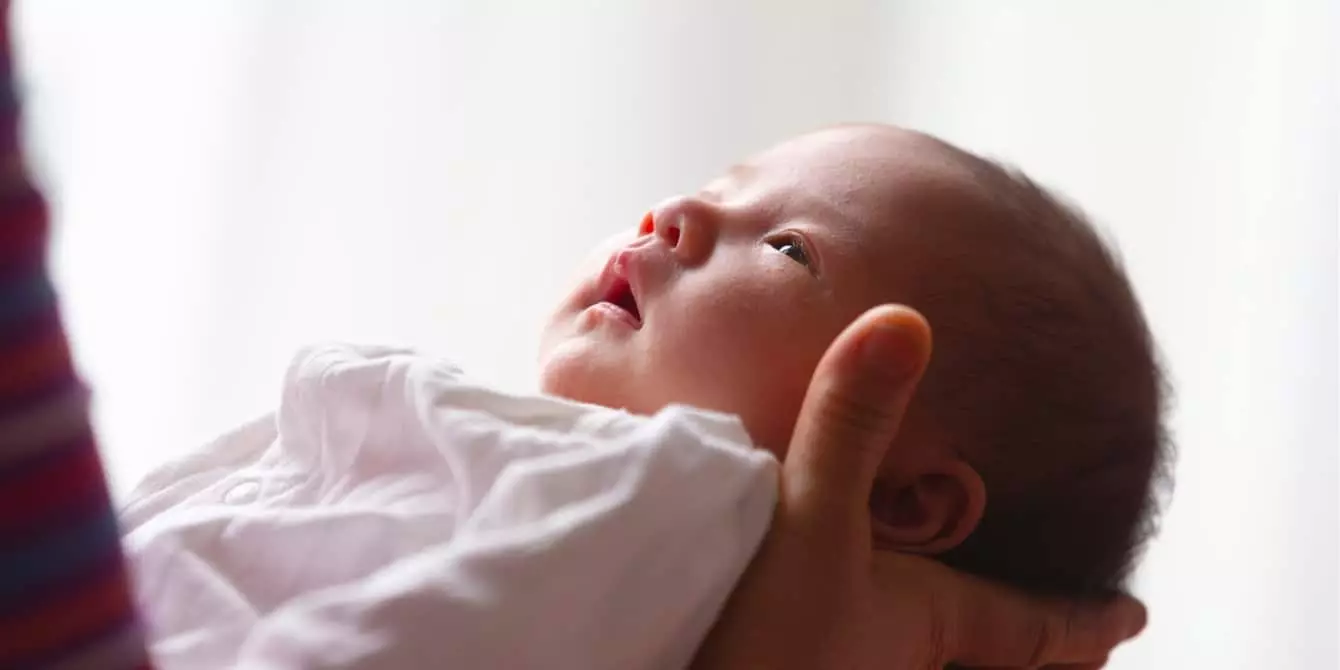For many mothers, few things are as distressing as witnessing their baby’s distress without understanding the cause. The most common reasons, such as hunger, a soiled diaper, or fatigue, are often quickly remedied with a cuddle or a feed. However, sometimes these tears represent a deeper complexity—a communication from an infant about their emotional state. This situation underscores an essential yet frequently ignored subject: infant mental health. The prevailing belief that mental health concerns are restricted to older children neglects the profound impacts that early experiences can have on an infant’s psychological development.
Experts now emphasize that mental health begins well before a child utters their first word. Research indicates that babies are not only capable of feeling emotions; they also react to their caregivers’ responses, which can either support or hinder their emotional development. The statistics are alarming, revealing that nearly 20% of children between the ages of 3 and 17 in the United States face mental health challenges, yet infants are often overlooked in this narrative. It is crucial to recognize that the formative years, particularly those spent in utero and the first three years of life, set the stage for mental health outcomes later in life.
Dr. Jean Clinton, a leading infant psychiatrist, articulates the gravity of early emotional experiences. She highlights a significant misconception that babies, perceived as innocently charming beings, are immune to mental health issues. The reality is that their brains are inherently shaped by their interactions and experiences. From prenatal stages to the first years of life, the environments that mothers create—whether nurturing or toxic—play a pivotal role in sculpting their child’s future emotional landscape.
Prenatal care is often limited to monitoring physical health, yet the mental health of a mother profoundly influences her baby. According to Beverly Gould, a program director at the Macari Perinatal Intensive Outpatient Program, the sharing of experiences between mother and child in utero defines much of the child’s developmental trajectory. Chemicals released due to maternal stress, for example, can enter the fetus’s system and affect brain development. Dr. Clinton reinforces this idea, noting that extreme stress can cause hormonal changes detrimental to baby’s psychological system.
It is essential not to despair if you are a mother who has faced high levels of stress during pregnancy. The human brain, particularly an infant’s, demonstrates remarkable resilience. Dr. Clinton reassures parents that a loving and nurturing environment significantly mitigates the impacts of prior stressors. ‘Neuroplasticity’—the brain’s ability to adapt and rewire itself—implies that attuned parenting and emotional support can foster healthy development even after a challenging start.
After birth, the responsibility of shaping a nurturing environment continues. The experiences shaped during these early years—through both positive and negative interactions—profoundly influence a child’s perception of themselves and the world. Treating each cry as a cry for help, reinforcing trust through responsiveness, and creating a ‘safe nest’ are integral to healthy emotional growth. Experts advocate for skin-to-skin contact, consistent routines, and open communication to build an atmosphere of security for infants.
As caretakers, it’s crucial to be vigilant for indicators of distress in infants. Not every fussy cry points to a larger issue, but consistent patterns in behavior can signal a need for intervention. Behaviors such as persistent crying, avoidance of eye contact, or withdrawal from social engagement may warrant further observation and, eventually, professional support. Such patterns should not cast doubt on one’s capabilities as a parent but should be understood as signs that the child could benefit from additional help.
Fortunately, support systems exist, ranging from pediatricians to therapists specializing in child welfare. If any concerns arise regarding an infant’s mental health, it is imperative to consult with knowledgeable professionals. Dr. Clinton emphasizes that the responsibility lies not only with the child to navigate their emotional health but also on the caregivers to foster an environment where emotions can be expressed, acknowledged, and processed.
Ultimately, nurturing a child’s mental health is as vital as any other aspect of their upbringing. However, parents must recognize the importance of their own mental health too. The capability of a caregiver to attune to an infant’s needs is influenced by their well-being. Seeking help for persistent low moods or postpartum issues is vital—not only for individual benefit but to create a stable environment for the child.
In the journey of parenthood, awareness and proactive measures regarding mental health—both for infants and caregivers—can pave the way for healthier futures. By emphasizing emotional safety and connecting deeply with infants, parents can lay a foundational bedrock for their children’s overall mental health development, ensuring they thrive both now and in the years to come.

